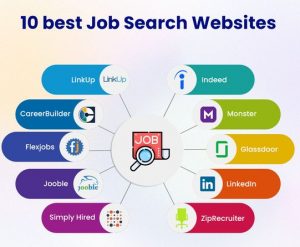How to Find & Hire LatAm Developers
Table of Contents
In recent years, there has been a noticeable surge in the hiring of Latin American developers for remote projects. Several factors, including the increasing globalization of the tech industry, advancements in remote work technologies, and the growing recognition of the talent pool available in Latin America drive this shift. As companies worldwide seek to harness the expertise of skilled developers while capitalizing on the benefits of remote work, tapping into the Latin American talent pool has become an attractive option.
Hiring Latin American developers offers many cool advantages for businesses looking to outsource or expand their development teams. Firstly, Latin America boasts a large pool of highly skilled developers who are proficient in a wide range of programming languages and technologies. These developers often possess strong educational backgrounds, with many holding degrees from reputable universities and technical institutes.
Additionally, Latin American developers are known for their creativity, adaptability, and problem-solving abilities, making them valuable assets for companies tackling complex projects or seeking innovative solutions. Furthermore, when looking to hire Latin American developers can provide cost savings compared to hiring developers from other regions, such as North America or Europe, without compromising quality.
Getting Started
Today’s article will look into various aspects of finding and hiring Latin American developers for remote projects. We will discuss practical strategies for identifying and evaluating potential candidates, including leveraging online platforms, conducting interviews, and assessing technical skills. Additionally, we will examine key considerations when collaborating with remote developers when looking at how to hire Latin American developers, such as communication strategies, project management tools, and cultural nuances. Finally, we will address common challenges and pitfalls to avoid when looking to hire Latin American developers, along with tips for fostering successful working relationships and maximizing the benefits of remote collaboration.
In global talent sourcing, hiring Latin American developers presents a compelling opportunity for companies seeking to build agile, high-performing development teams. By understanding the unique strengths of Latin American talent and implementing effective hiring and collaboration strategies, businesses can unlock new avenues for innovation and growth while driving greater efficiency and competitiveness in today’s digital economy.
Who is a Latin American Developer?
In simple terms, a Latin American developer refers to a software engineer, programmer, or developer who originates from or is based in Latin America. Latin America encompasses a vast region comprising countries in Central and South America, as well as parts of the Caribbean, each with its own unique culture, language, and socioeconomic landscape. Latin American developers are integral members of the global tech community, contributing their expertise to a wide range of projects and industries.
Latin America boasts a diverse and vibrant tech talent pool, with developers hailing from countries such as Brazil, Mexico, Argentina, Colombia, Chile, and many others. This region is home to a burgeoning tech ecosystem characterized by a mix of established tech hubs and emerging startup scenes. Cities like São Paulo, Buenos Aires, Mexico City, and Bogotá have earned reputations as hotbeds of innovation, attracting top talent and investment from around the world. Additionally, smaller cities and rural areas are also nurturing growing communities of tech professionals, fueled by initiatives to promote digital literacy and entrepreneurship.
CloudDevs includes a full-length article about the coding culture bringing insights about the Latin American developer community. You can read that here.
Skills and Expertise of Latin American Developers
Latin American developers are known for their strong technical skills, adaptability, and creativity which is why you should consider having Latin American developers in your remote team. Many developers in the region receive rigorous training through formal education programs at universities and technical institutes, where they gain expertise in a wide array of programming languages, frameworks, and tools. Common skills among Latin American developers include proficiency in languages such as Java, Python, JavaScript, and C++, as well as familiarity with popular development platforms like Node.js, React, Angular, and Laravel.
Moreover, Latin American developers often demonstrate a knack for problem-solving and innovation, leveraging their diverse backgrounds and experiences to tackle complex challenges and develop innovative solutions. Their ability to collaborate effectively in multicultural and cross-functional teams further enhances their value in today’s globalized tech landscape.
You can read CloudDevs complete guide for hiring Latin American developers here.
Advantages of Hiring Latin American Developers

What are the advantages of hiring a Latin American developer? It simply comes to many reasons that are not just based on its geography. Latin American developers offer a diverse range of skills, experiences, and perspectives that can greatly enhance the productivity and innovation of remote projects. Some of the advantages of hiring Latin American developers are mentioned below.
- Cost – effectiveness compared to developers from other regions: One of the primary advantages of hiring Latin American developers is the cost-effectiveness they offer compared to developers from regions such as North America or Europe. While Latin American developers often command competitive salaries commensurate with their skills and experience, labor costs in many Latin American countries are generally lower than in their Western counterparts. This enables businesses to achieve significant cost savings without compromising on the quality of talent or deliverables.
- Similar time zones and cultural compatibility: Latin American developers offer the advantage of working in time zones that are relatively compatible with those of North American businesses. This alignment facilitates smoother communication, collaboration, and project management, as there are fewer scheduling conflicts and delays typically associated with working across disparate time zones. Additionally, Latin American developers often share cultural affinities and values with their North American counterparts, fostering greater understanding, teamwork, and cohesion within remote teams.
- High-quality education and technical skills: Latin America is home to a robust educational infrastructure, with many universities and technical institutes offering world-class programs in computer science, engineering, and related fields. As a result, Latin American developers possess high-quality education and technical skills, with proficiency in a wide range of programming languages, frameworks, and tools. Their strong foundation in computer science principles and practical expertise make them valuable assets for businesses seeking top-tier talent for their projects.
- Growing tech ecosystems in Latin America: Over the past decade, Latin America has witnessed remarkable growth in its tech ecosystems, fueled by increasing investment, entrepreneurship, and innovation. Tech hubs like São Paulo, Mexico City, and Bogotá have emerged as vibrant centers of tech activity, attracting startups, investors, and talent from around the world. This burgeoning ecosystem provides Latin American developers with ample opportunities for networking, skill development, and career advancement, further enhancing their value proposition for remote projects.
- Multilingual abilities: Latin American developers often possess multilingual abilities, including proficiency in English, Spanish, and Portuguese, among other languages. This linguistic versatility enables them to effectively communicate and collaborate with clients, colleagues, and stakeholders from diverse cultural and linguistic backgrounds. Moreover, their language skills can facilitate smoother interactions with end-users and customers, enhancing the overall user experience and marketability of the products and services they help develop.
Thus, it is quite clear that if you look to hire Latin American developers, it offers a multitude of advantages for businesses embarking on remote projects, including cost-effectiveness, compatibility in time zones and culture, high-quality education and technical skills, access to growing tech ecosystems, and multilingual abilities. By tapping into the talent pool available in Latin America, businesses can leverage these advantages to build agile, high-performing teams and drive success in today’s competitive global marketplace.
Considerations When Hiring Latin American Developers
There are things you should consider when looking to hire Latin American developers. We have mentioned a list of things you should think when searching to hire a Latin American developer.
- Language proficiency

When hiring Latin American developers, it’s crucial to assess their language proficiency, particularly in English and Spanish. English is widely used as the primary language for communication in the global tech industry, so proficiency in English is essential for effective collaboration with international teams and clients. Additionally, proficiency in Spanish can be advantageous, especially for projects involving clients or stakeholders in Latin America or Spain. Assessing language skills during the hiring process ensures clear communication and minimizes misunderstandings, leading to smoother project execution.
- Communication and Collaboration
Effective communication and collaboration are paramount in remote work settings. When hiring Latin American developers, consider their familiarity with communication and collaboration tools commonly used in remote work environments, such as video conferencing platforms, project management software, instant messaging applications, and version control systems. Ensuring that developers are comfortable and proficient with these tools facilitates seamless communication, enhances productivity, and fosters a sense of connectivity within remote teams.
- Evaluating remote working experience
Prior experience with remote work can be a valuable asset when hiring Latin American developers. Remote work requires self-discipline, time management skills, and the ability to work independently without constant supervision. Assessing candidates’ past experience with remote work, including their ability to meet deadlines, collaborate effectively with remote teams, and overcome challenges associated with remote work environments, provides insight into their suitability for remote projects. Look for candidates who demonstrate adaptability, resilience, and a track record of successful remote collaborations.
- Intellectual property protection and legal considerations
When engaging Latin American developers for remote projects, it’s essential to address intellectual property (IP) protection and legal considerations upfront. Clarify ownership rights, confidentiality agreements, and non-disclosure agreements to protect your company’s proprietary information and assets. Ensure that contracts and agreements comply with relevant laws and regulations in both your home country and the developer’s country of residence. Consulting with legal experts familiar with international IP laws and cross-border contracting can help mitigate risks and ensure legal compliance throughout the engagement.
- Time zone differences and project management challenges
Time zone differences between your location and that of Latin American developers can pose challenges for project management and communication. Be proactive in addressing these challenges by establishing clear communication protocols, scheduling regular meetings at mutually convenient times, and leveraging tools and techniques to bridge time zone gaps. Consider adopting flexible working hours or implementing staggered schedules to accommodate different time zones and maximize collaboration. Effective project management strategies, such as setting clear goals, defining roles and responsibilities, and fostering a culture of accountability, are essential for overcoming time zone differences and ensuring project success.
By considering these key factors when hiring Latin American developers for remote projects, you can mitigate risks, enhance collaboration, and maximize the benefits of working with a talented and diverse remote team.
Where to Find Latin American Developers?
The internet offers a lot of online platforms and communities where businesses can connect with Latin American developers. Websites like GitHub, Stack Overflow, and GitLab serve as hubs for developers to showcase their skills, collaborate on projects, and engage with potential employers. Additionally, specialized platforms such as Toptal, Upwork, and Freelancer provide avenues for hiring freelance developers from Latin America. These platforms often feature profiles, portfolios, and reviews that enable businesses to assess developers’ qualifications and suitability for their projects. You can read CloudDevs’ Top 7 Websites to Hire LatAm Developers to see other talent platforms out there.
Popular job platforms for hiring Latin American developers
Several job platforms cater specifically to employers seeking Latin American talent. Websites like LinkedIn, Glassdoor, and Indeed allow businesses to post job openings and search for candidates based on various criteria, including location, skills, and experience. Moreover, regional job boards and portals, such as Laborum in Peru, InfoJobs in Brazil, and Computrabajo in Mexico, cater to the local talent market and facilitate connections between employers and developers in Latin America.
Tech conferences, events, and meetups offer valuable opportunities for businesses to network with Latin American developers and explore potential collaboration opportunities. Events like Campus Party, CONAPRO in Mexico, and BrazilJS in Brazil attract thousands of tech enthusiasts, professionals, and entrepreneurs from across the region and beyond. Participating in such events allows employers to engage with developers, learn about emerging trends and technologies, and establish meaningful connections within the Latin American tech community.
- Social media and professional networks
Social media platforms and professional networks are invaluable resources for identifying and engaging with Latin American developers. Platforms like Twitter, Facebook, and LinkedIn host numerous groups, communities, and forums dedicated to tech-related topics, where developers actively participate in discussions, share insights, and seek career opportunities. By leveraging targeted hashtags, groups, and connections, businesses can expand their reach and connect with potential candidates in Latin America. Additionally, online communities such as Reddit, Dev.to, and Hashnode provide spaces for developers to exchange ideas, seek advice, and showcase their expertise, making them valuable channels for talent acquisition.
Businesses seeking to hire Latin American developers can leverage a variety of online platforms, job boards, tech events, and social networks to connect with talent across the region. By utilizing these channels strategically and engaging proactively with the Latin American tech community, employers can identify skilled developers, build strong relationships, and assemble high-performing remote teams for their projects.
The Best Platform to Find Latin American Developers
When it comes to sourcing and hiring top-tier Latin American developers, CloudDevs shines as a standout platform of choice. Boasting an extensive pool of over 8000 skilled developers from across Latin America, CloudDevs prides itself on maintaining the highest standards in software development. What sets CloudDevs apart is its rigorous three-step vetting process, ensuring that only the most qualified and capable developers make it onto their roster.
At the core of CloudDevs’ service is a steadfast commitment to client satisfaction. Developers on the platform are dedicated to working within the client’s time zone, facilitating seamless communication and collaboration. To further ensure compatibility, clients are offered a generous week-long trial period to assess the performance and fit of assigned developers. In the rare instance of dissatisfaction, CloudDevs offers clients the flexibility to request a refund or opt for a replacement developer, underscoring their unwavering dedication to delivering excellence.
A standout feature of CloudDevs is its impressive lineup of pre-vetted developers, adding an extra layer of specialization and expertise to their developer pool. This further cements CloudDevs’ reputation as a go-to platform for accessing top talent throughout Latin America.
In terms of affordability and accessibility, CloudDevs offers competitive hourly rates ranging from $45 to $75, providing clients with a range of options to suit their budgetary needs. Moreover, the platform’s streamlined hiring process ensures that developers can be onboarded swiftly within just 24 hours, allowing clients to kickstart their projects promptly and efficiently.
With its comprehensive offerings, stringent developer selection process, and unwavering focus on client satisfaction, CloudDevs stands out as the premier destination for businesses in search of elite Latin American developers for their software development endeavors.
Steps of Evaluating and Interviewing Latin American Developers
Step 01: Crafting effective job descriptions and requirements
Crafting clear and comprehensive job descriptions is crucial for attracting qualified Latin American developers. Job descriptions should accurately convey the responsibilities, qualifications, and expectations for the role, including technical skills, experience level, and language proficiency requirements. Additionally, highlighting the benefits of remote work, opportunities for professional growth, and the company’s values and culture can help attract top talent and differentiate the job opportunity. This is the first step and one of the most important steps according to the 4 Things to Keep in Mind when hiring software developers from Latin America.
Step 02: Assessing technical skills and experience
When evaluating Latin American developers, it’s essential to assess their technical skills and experience relevant to the role. This may involve reviewing resumes, portfolios, and code samples to gauge proficiency in programming languages, frameworks, and tools required for the position. Employers can also administer coding tests, technical challenges, or projects to assess developers’ problem-solving abilities, code quality, and familiarity with industry best practices.
Step 03: Conducting remote interviews and technical assessments
Remote interviews and technical assessments are essential steps in the hiring process for remote Latin American developers. Employers can leverage video conferencing platforms like Zoom, Skype, or Google Meet to conduct virtual interviews and assess candidates’ communication skills, professionalism, and enthusiasm for the role. Additionally, technical assessments, such as live coding sessions, pair programming exercises, or take-home assignments, allow employers to evaluate developers’ technical proficiency, approach to problem-solving, and ability to work independently.
Step 04: Evaluating soft skills and cultural fit
In addition to technical skills, evaluating soft skills and cultural fit is vital when hiring Latin American developers for remote projects. Soft skills, such as communication, collaboration, adaptability, and time management, are essential for remote work success. Employers can assess these skills through behavioral interviews, situational questions, and reference checks to ensure candidates can effectively collaborate with remote teams and align with the company’s values and working culture.
Effectively evaluating and interviewing Latin American developers requires a strategic approach that encompasses crafting clear job descriptions, assessing technical skills and experience, conducting remote interviews and technical assessments, and evaluating soft skills and cultural fit. By implementing these best practices, employers can identify and hire top talent from Latin America to contribute to their remote projects successfully.
How to Interview Latin American Developers?
When interviewing developers, it’s imperative to adopt a thoughtful approach that considers cultural nuances and fosters effective communication. This is particularly important when engaging with candidates from Latin America, where interviewing styles may differ from those in other regions. Here are some key strategies to ensure a successful interview process:
- Transparency and Clarity
Be upfront about your interview process and what candidates can expect. In many Latin American countries, the typical interview process may differ from that of the US, often consisting of fewer stages. By providing clear information, candidates can better prepare and engage in the process.
- Ice-Breaking Questions
Initiate the interview with ice-breaking questions to create a comfortable atmosphere and encourage open communication. Sample questions could include:
– What are your hobbies and interests outside of work?
– How do you typically handle pressure or stressful situations?
– Can you describe your ideal remote working environment?
– Tell me about a challenging situation you encountered in your previous role and how you resolved it.
- Professional Experience and Projects
Explore the candidate’s professional experience and projects they’ve worked on. While technical skills are crucial, understanding the context and impact of their work provides valuable insights. Consider asking:
– What projects are you most proud of and why?
– Can you walk me through your approach to solving a particularly complex technical challenge?
– Describe a time when you faced difficulties in a project and how you overcame them.
- Technical Proficiency
Assess the candidate’s technical proficiency through targeted questions related to their skills and experiences. This could include:
– What programming languages and technologies are you most comfortable working with?
– Can you provide examples of projects where you applied these skills effectively?
– How do you stay updated with the latest developments in technology within your field?
- Cultural Fit and Team Dynamics
Evaluate the candidate’s cultural fit and ability to collaborate within a remote team environment. Questions in this category may include:
– How do you approach collaboration and communication within a remote team setting?
– Can you share an experience where you had to work closely with team members from diverse backgrounds?
– What strategies do you use to maintain productivity and communication while working remotely?
- Strategic Presentation of Job Offer
Once the interviews are complete, carefully consider the candidate’s expectations and the benefits your company offers. Tailor the job offer to align with their needs and aspirations, ensuring a mutually beneficial outcome.
By incorporating these strategies and sample questions into your interview process, you can effectively evaluate developers while fostering a positive and inclusive experience for candidates from Latin America and beyond.
How to Build a Successful Remote Work Relationship?
Building successful remote work relationships is essential for productivity and well-being. Key strategies include intentional relationship-building, leveraging social connections, actively combating isolation, consistently delivering on commitments, effective communication, virtual collaboration, showing empathy, and offering support.
By implementing these strategies, both leaders and employees can foster a positive and productive remote work environment.
Establish clear communication channels and expectations
Clear communication is the cornerstone of a successful remote work relationship. Employers should establish transparent communication channels, such as email, instant messaging platforms, and video conferencing tools, to facilitate regular communication between remote Latin American developers and the rest of the team. Additionally, setting clear expectations regarding availability, response times, and communication protocols helps ensure everyone is on the same page and minimizes misunderstandings or delays.
Setting up project management tools and workflows
Effective project management is essential for coordinating remote teams and ensuring project success. Employers should leverage project management tools like Trello, Asana, or Jira to organize tasks, assign responsibilities, and track progress in real-time. Establishing clear workflows, milestones, and deadlines helps remote Latin American developers stay organized, focused, and accountable for their contributions to the project.
Fostering a collaborative and inclusive work environment
Building a collaborative and inclusive work environment is key to fostering teamwork and synergy within remote teams. Employers should encourage open communication, idea-sharing, and knowledge exchange among team members, regardless of their geographical location. Creating opportunities for virtual team-building activities, brainstorming sessions, and cross-functional collaboration helps remote Latin American developers feel valued, engaged, and connected to the broader team.
Providing ongoing feedback and support
Regular feedback and support are essential for remote Latin American developers to thrive in their roles and contribute effectively to the project. Employers should provide constructive feedback, recognition, and guidance to help developers improve their skills, overcome challenges, and achieve their goals. Additionally, offering mentorship, professional development opportunities, and resources for personal growth demonstrates a commitment to supporting the professional development and well-being of remote team members.
By prioritizing effective communication, organization, teamwork, and support, employers can cultivate strong relationships with remote developers and drive success in their projects.
To Wrap Up
In conclusion, we have highlighted the importance of adapting interviewing processes to accommodate cultural differences, particularly when engaging with developers from Latin America. This includes the significance of transparency and clarity in the interview process, emphasizing the need for clear communication and expectations. Ice-breaking questions were suggested as a way to create a comfortable atmosphere, allowing both parties to engage more effectively.
Reiterating the advantages of hiring Latin American developers for remote projects, it’s evident that they offer a diverse range of skills, experiences, and perspectives that can significantly enhance productivity and innovation. Their proficiency in English and cultural compatibility with Western clients further strengthen communication and collaboration, fostering successful project outcomes. Additionally, Latin American developers often demonstrate strong problem-solving abilities and adaptability, contributing to the agility and resilience of remote project teams.
For the best pre-vetted Latin American developers, check out CloudDevs. Not just developers, CloudDevs brings you a number of resources, including blogs and guides about different types of programming languages, frameworks, development environments, and tools.
Finally, we encourage you to explore the vast talent pool in Latin America and consider the numerous opportunities available. By tapping into this talent pool, companies can benefit from the unique skills and perspectives that Latin American developers bring to the table, ultimately driving success in remote projects.





